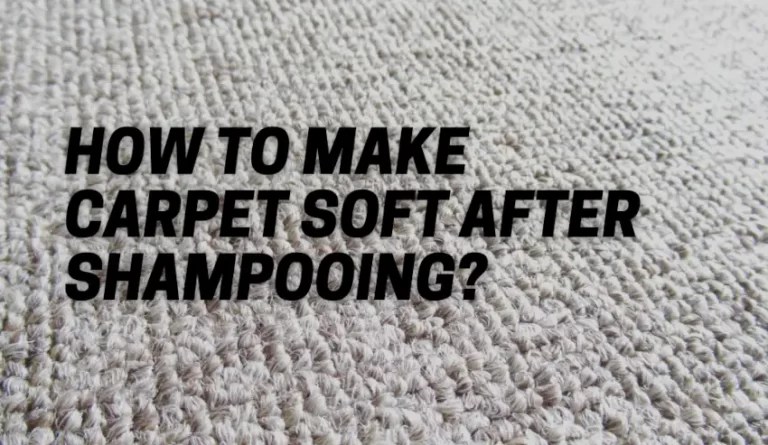Crunchy Carpet? Unraveling the Mystery Beneath Your Feet
Ever walked across your carpet and noticed a strange crunching sound? It's a common household mystery, often leaving homeowners perplexed and slightly grossed out. This disconcerting crunch can range from a subtle grit to a loud crackling, signaling a variety of underlying issues. Don't let that crunchy carpet keep you up at night! This guide will delve into the reasons behind that unsettling noise and provide practical solutions to restore peace and quiet to your floors.
The crunchy carpet phenomenon is more than just an auditory annoyance. It can be a sign of trapped dirt, debris, or even underlying carpet damage. Understanding the potential causes is the first step towards rectifying the problem and preventing future occurrences. We'll explore everything from everyday dirt accumulation to more serious issues like pet accidents or improper cleaning methods.
The main culprits behind crunchy carpets are often dry particles trapped between the carpet fibers. These particles can range from everyday dust and dirt to dried spills, pet dander, or even small insects. Over time, these particles accumulate and create friction when walked upon, resulting in that tell-tale crunch. In some cases, the crunch can be caused by damage to the carpet backing or padding, especially in high-traffic areas. This type of damage can result from excessive wear and tear, improper installation, or moisture issues.
Identifying the source of the crunch is crucial for determining the best course of action. A simple vacuuming might suffice for minor dirt buildup, while a deeper cleaning or even carpet replacement might be necessary for more significant issues. Ignoring the crunch can lead to further damage and even create an unhealthy environment within your home.
This comprehensive guide aims to provide you with the knowledge and tools to tackle that crunchy carpet conundrum. We'll explore the most common causes, offer practical solutions, and equip you with preventative measures to maintain a clean, quiet, and comfortable home. From simple vacuuming techniques to deep cleaning methods, we'll cover everything you need to know to banish that crunch for good.
One of the easiest solutions for a crunchy carpet is regular and thorough vacuuming. Make sure to use a vacuum cleaner with strong suction and a beater bar to dislodge trapped particles. For stubborn crunching, consider using a carpet rake or brush to agitate the fibers and loosen debris before vacuuming.
Deep cleaning your carpets every six to twelve months can help remove deeply embedded dirt and grime. You can rent a carpet cleaner or hire a professional cleaning service for this task. Ensure the carpet dries completely after cleaning to prevent mold and mildew growth, which can contribute to further crunching.
If the crunchy sound persists despite regular cleaning, it might indicate a problem with the carpet padding. Damaged or compressed padding can create a crunchy sensation. In such cases, replacing the padding is the best solution. Consult a professional carpet installer for this process.
Advantages and Disadvantages of Addressing Crunchy Carpets
| Advantages | Disadvantages |
|---|---|
| Improved indoor air quality | Cost of professional cleaning or carpet replacement |
| Enhanced carpet longevity | Time investment for cleaning and maintenance |
| Increased comfort and aesthetic appeal | Potential inconvenience during deep cleaning |
Frequently Asked Questions (FAQs)
Q: Why does my carpet sound crunchy even after vacuuming? A: The crunch might be due to deeply embedded dirt or damaged padding.
Q: How often should I deep clean my carpets? A: Deep cleaning every six to twelve months is generally recommended.
Q: Can I use baking soda to remove carpet crunch? A: While baking soda can help absorb odors, it might not be effective for removing the crunchy particles.
Q: What causes crunchy carpet in high-traffic areas? A: Wear and tear, compressed padding, or accumulation of dirt and debris are common causes.
Q: How can I prevent my carpet from becoming crunchy? A: Regular vacuuming, prompt spill cleanup, and professional cleaning can help prevent crunchy carpets.
Q: Is crunchy carpet a sign of mold? A: Not necessarily, but if accompanied by a musty smell, it could indicate mold growth.
Q: Can pet hair contribute to crunchy carpets? A: Yes, pet hair can accumulate and contribute to a crunchy sensation.
Q: Should I replace my carpet if it's crunchy? A: If cleaning and padding replacement don't resolve the issue, replacement might be necessary.
Tips and Tricks
Use doormats to trap dirt and debris before they reach your carpet. Regularly groom pets to minimize shedding. Address spills immediately to prevent them from drying and contributing to the crunch.
In conclusion, a crunchy carpet can be a nuisance, but understanding the causes and implementing the right solutions can effectively address the issue. Regular cleaning, proper maintenance, and prompt attention to spills can prevent crunchy carpets and prolong their lifespan. By following the advice outlined in this guide, you can enjoy a clean, quiet, and comfortable home, free from the unsettling sounds of a crunchy carpet. Don’t let the crunch win! Take control of your floor’s fate and restore the peace and quiet you deserve. Addressing a crunchy carpet not only enhances the comfort and aesthetic appeal of your home but also contributes to a healthier indoor environment. By taking proactive steps and following the recommended maintenance practices, you can prevent future crunching and ensure the longevity of your carpet investment. Take action today, and say goodbye to that annoying crunch for good!
Integer arithmetic a deep dive into adding and subtracting
Unlocking measurements your guide to conversion charts for 5th grade
The allure of forbidden literature exploring the second installment














